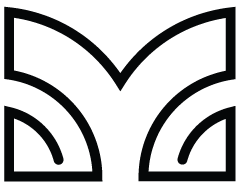As artificial intelligence continues to disrupt the creative industries, one of the most pressing topics is copyright—particularly in the world of AI-generated pattern designs. For fashion brands, textile manufacturers, and digital creators, understanding the implications of copyright in AI is essential to protecting original work and staying compliant in a rapidly evolving legal landscape.
This blog explores the copyright risks and benefits of using open-source vs. closed-source AI technologies, and why MYTH AI—a leading closed-source pattern generation platform—sets a new standard for legal integrity and design ownership.
🧠 The Open-Source Dilemma: Innovation Meets Uncertainty
Open-source AI platforms like OpenAI, Midjourney, and Stability AI have democratized access to generative technologies. While they encourage innovation, open collaboration, and broad experimentation, they come with major copyright concerns, including:
- Lack of dataset transparency: Most open models are trained on publicly available or scraped content, making it unclear whether training data included copyrighted material.
- No guaranteed design ownership: Users who generate content with open-source tools typically do not receive legal proof of originality or copyright ownership.
- Risk of similarity and plagiarism: With limited control over input data, models may inadvertently reproduce elements of existing designs, creating legal vulnerabilities.
This legal ambiguity can be risky—especially for commercial use in industries like textile printing, fashion design, and packaging.
.
🔒 The Closed-Source Advantage: How MYTH AI Redefines Legal Trust
In contrast, closed-source AI platforms like MYTH AI offer a more secure and professional solution for pattern generation.
What Makes MYTH AI Different?
- Curated Datasets: MYTH AI is trained on a carefully selected proprietary dataset of 6.5 billion patterns, ensuring that all training content complies with professional and commercial standards.
- Organic Learning: The system evolves dynamically based on real-time user interaction—tracking liked, downloaded, and produced designs to refine future outputs. This means it learns creatively, not just statistically.
- Purpose-built for the design industry: MYTH AI focuses exclusively on printing pattern design, enabling high-precision outputs for fashion, home textiles, and digital applications.
🧾 Ownership Certificates: A New Standard in Creative Protection
One of MYTH AI’s most powerful features is its Ownership Certificate system.
For every downloaded design, the platform issues an official certificate that:
- Proves the design’s origin
- Confirms exclusive user rights
- Grants legal commercial usage
- Establishes a traceable record for each creation
This sets MYTH AI apart from generic AI tools by providing a clear legal framework—a must for professional designers and brands looking to safeguard their intellectual property.
📌 Why Copyright Matters in AI Pattern Design
Whether you’re a solo designer or a global brand, the ability to legally own and protect your designs is vital. Without legal clarity:
- Your designs may be at risk of duplication
- Your business could face legal challenges
- Your reputation could suffer from copyright disputes
Using platforms like MYTH AI not only elevates creative quality, but also brings peace of mind, knowing that every design you create is original, compliant, and protected.
🎯 Open vs. Closed: A Quick Comparison
| Feature | Open-Source AI (e.g., OpenAI, Midjourney) | Closed-Source AI (e.g., MYTH AI) |
|---|---|---|
| Dataset Transparency | ❌ Often unclear | ✅ Fully curated |
| Legal Ownership | ❌ Not guaranteed | ✅ Ownership Certificate provided |
| Commercial Use Safety | ⚠️ Risk of IP violations | ✅ Safe for professional use |
| Design Uniqueness | ⚠️ May include replicated elements | ✅ Organic, evolving designs |
| Use Case | Casual/creative exploration | Professional pattern production |
💬 Final Thoughts: Choosing the Right AI for Creative Work
As generative AI continues to evolve, it’s crucial to make informed choices—especially when it comes to copyright and design integrity. For businesses and professionals, choosing a platform like MYTH AI isn’t just about features—it’s about trust, precision, and ownership.
With its closed-source infrastructure, legally compliant dataset, and commitment to empowering creators with real ownership, MYTH AI offers a compelling alternative for those who take their designs seriously.
👉 BOOK A DEMO or contact us at [email protected] to explore how MYTH AI can transform the way you design—with confidence, creativity, and copyright clarity.
